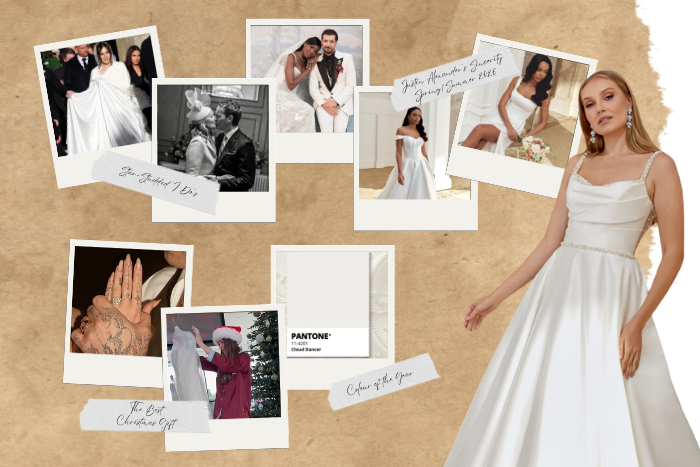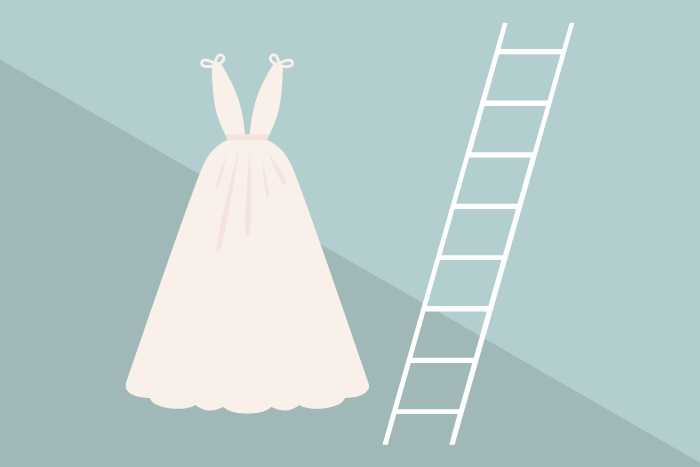Consumer protection: all you need to know
Barbara Neilan, BridalBuyer.com’s business law expert, explains what constitutes the Consumer Rights Act and how detailed contracts can help business owners can protect themselves against legal issues.
The last 18 months haven’t been the kindest to the wedding industry. Thankfully, next year looks like it’s going to a very busy wedding year. This brings me onto this this month’s topic – consumer protection. In this month’s article, we’re looking at consumers, their rights and what business owners have to be aware of.
What are consumer rights?
In the UK and EU, there are a range of laws protecting consumers (i.e. your everyday person acting outside of their trade or business). It’s important to understand this distinction, as the consumer rights I mentioned don’t protect business customers, only consumers. This makes it really important to properly understand your market, and understand who you are selling to.
What rights do customers have when you sell goods?
No matter the goods you sell, whether it’s a dress, tiara, or shoes, to be compliant with the Consumer Rights Act 2015 (and other legislation), those goods need to be three things:
Satisfactory quality: Goods shouldn’t be faulty or damaged when they are sold to the customer. When we’re deciding if something is satisfactory quality, we would ask: what quality would a reasonable person consider satisfactory? For instance, the types of goods sold for weddings would be held to a higher standard than goods you’d find at a high street bargain clothes shop. It’s a question of context.
Fit for purpose: The customer should be able to use the goods for the purpose for which they were supplied.
As described: The goods should match the description you gave to the customer, such as within the online listing, or any samples you showed the customer prior to purchase.
To give you an example, a wedding dress purchased from your store should be able to be worn for the whole wedding day (and the dancing afterwards) without falling apart at the seams, there shouldn’t be loose threads or missing sequins, and it shouldn’t be yellow if it was described as white.
If the product doesn’t meet all three things, the customer is legally entitled to a full refund or a return. On the flip side, if the customer doesn’t use the product for the purpose intended, such as by turning your beautiful veil into a parachute or wearing a bridesmaid dress during a Tough Mudder assault course, the same rules don’t apply and so they are not entitled to a refund or return!
Another right customers have is the right to change their mind if they no longer want the, for any reason whatsoever. The customer has 14 days to change their mind from the date of making a purchase or receiving the goods (whichever is later). They are entitled to a refund in this case however the goods they returned must be in the same condition as it was sold.
As a side note, you can choose to increase the cooling off period beyond the statutory minimum of 14 days if you want, but that’s entirely up to you. There is absolutely no obligation to do so.
Many of you out there will sell bespoke or made-to-measure goods, and the cooling off period doesn’t apply to these. For instance, if you have specially ordered in a dress for a customer, they can’t then change their mind and get a refund. The same goes if you have tailored a dress for a customer – it’s theirs whether they want it or not. This also applies where customers have paid only a deposit – they cannot legally change their mind and refuse to pay the outstanding balance!
So how can you protect yourself?
You guessed it – your contract!
Whether it’s a contract they sign or terms and conditions they agree to by clicking a tick box, you should clearly state:
- Whether you are providing the goods or services to a business (B2B) or to a consumer (B2C);
- That the customer is entitled to a 14-day cooling off period is (or, if not, why not);
- What they can do if the goods don’t meet the three criteria I mentioned;
- That refunds or returns are not accepted for bespoke, tailored, or perishable goods once the sale is made;
- That no refunds can be given for services already provided; and
- That you can charge a cancellation fee for services and how this is calculated (e.g. will you charge a 50% of the total fees if they cancel close to the day).
Essentially, your contract needs to be crystal clear so your customers know what they should expect and what rights they have.
Jamieson Law and Contacts
At Jamieson Law, we pride ourselves on helping small businesses understand their legal obligations and trying to make everything that bit less daunting.
If you feel like you could benefit from some one-to-one advice on consumer rights, your contract, or any other legal matter, please take advantage of our free 15-minute legal advice calls.
These are not sales calls; just our way of giving back to the business community. You can book a slot here calendly.com/jamiesonlaw/15min













